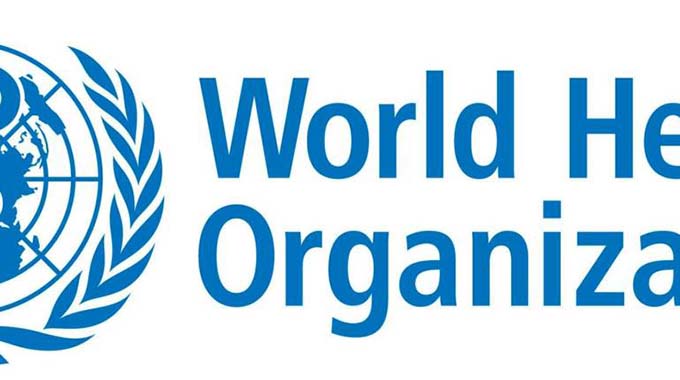Lifelong learning critical for growth, development

Rudo Gwata-CharambaCorrespondent
“The illiterate of the 21st century will not be those who cannot read and write, but those who cannot learn, unlearn and relearn.” — Alvin Toffler.
Learning, an indispensable tool that enhances the capacity of both individuals and organisations to understand and handle situations that need to be addressed within their environments, also nourishes the minds and soothes the souls of these entities.
Basically, learning signifies a progressive concept that is also an integral part of both personal and organisational development.
The concept is characterised by a continuous process aimed at expanding the knowledge, skill-sets and competencies that entities need to access opportunities within their environments.
From an early age, we are told that we should “acquire good quality education” so that we maximise our potential to find decent and more satisfying jobs, earn more and enhance potential for success in the careers that we select.
While it is generally true that formal education and the resulting qualifications are essential, “schooling” is only one type of learning among many other opportunities to increase knowledge and develop the skills needed throughout one’s life.
Moreover, both literature and experiential evidence show that the acquisition of sound education is not necessarily the key to a successful career path primarily because sound performance can take a lot more than qualifications.
Accordingly, employers are increasingly searching for well-balanced individuals possessing additional or transferable skills, notably the ability to demonstrate the enthusiasm to learn and grow.
Such individuals typically full of confidence and self-esteem, deriving from generally enhanced understanding and awareness of their business environments and associated tasks.
These attributes also foster motivation for creativity plus a high propensity to effectively achieve goals; factors that cause learners to become invaluable assets to their organisations.
The associated acquisition of knowledge plus the development of skill-sets can take place anywhere and everywhere in life and is applicable to everyone including students, homemakers, job seekers and senior citizens.
This makes learning an unavoidable and enduring process that comprising both simple and sometimes complex activities, apart from those relating to formal education.
Simple activities encompass daily programs that are implemented through socialization, trial and error or study while the complex ones require the guidance of real experts.
Nonetheless, the availability of learning opportunities for everyone are almost always guaranteed.
For example, in childhood, people learn to talk while in adulthood they develop new skills such as speaking a new language, farming, cooking, public speaking, researching on a topic of interest or getting trained for a new sport.
However, lifelong learning is a deliberate and voluntary process that takes absolute determination, a positive attitude towards learning, for purposes of both personal and organisational development plus a strong belief in the associate entity’s capacity to learn.
Accordingly, entities access information through reading, listening, observing, experimenting plus from daily work and life experience.
Both best practices and lessons learned are integrated into decisions relating to the crafting of new strategies or initiatives as well as refining programme activities and organisational tasks.
Generally, such learning helps to enhance understanding of the environment, provide greater opportunities for growth and improvement in the quality of lives.
Precisely, lifelong learning is a key driver for individual and organisational development at both up to the national as well as international levels.
To guarantee its effectiveness, learning ought to be consistent, occurring from both success and failure while the learners constantly maintain a positive attitude and keeping their minds fully open to new information.
Unfortunately, many entities, instead, develop and sustain negative attitudes towards all forms of failure leading to the loss of major opportunities to learn and improve.
Moreover, lifelong learning itself generally helps to maintain a positive attitude in life, thus making the notion self-reinforcing.
Relatedly, continuous learning and the associated active mind throughout life is generally believed to delay, or even arrest the progress of some forms of dementia, albeit with limited scientific evidence to support this common belief.
Nonetheless, learning can prevent boredom and lead to a generally more fulfilling life.
Technology has advanced the accessibility of information to most, in some cases to the point of overload, a factor that would be expected to promote learning and improvement for many entities.
However, the trick for effective learning lies in the capacity to acquire relevant, meaningful information and combining it with skills for the production of knowledge.
That is, there is always need to search for a personal meaning in the information and apply the resulting new knowledge into daily life, using the appropriate skills throughout all the processes.
If applied correctly, such knowledge leads to improved performance or the accomplishment of new plus ordinarily more complex tasks and projects as the learning process facilitates efficiency as well as access to new opportunities.
Furthermore, continuous learning breeds self-satisfaction as the associated entities get to understand more about their identity and functions, factors that can also lead to improved performance, results and, ultimately, growth.
The determination to learn motivates both individuals and organisations to aggressively face challenges habitually to the point of surpassing the necessary level of skills, and, in the process, creating a sense of pride and accomplishment that leads to further improvement in performance.
Moreover, learners are habitually great leaders whose high levels of confidence and motivation plus enhanced communication skills often attract individuals and group to follow them unconditionally through all situations.
In the same context, such leaders foster lifelong learning in their followers as well, hence further raising the potential for successful performance and, ultimately, development.
Essentially, continuous learning helps entities to acquire or sharpen skills that include creativity, problem-solving, critical thinking, leadership, interpersonal relationships and adaptability, among others.
As a result, learners remain relevant, prepared for the unexpected within a consistently changing global environment and effectively contributing towards making the world a better place.
On the contrary, those that fail to learn remain where they are and usually frustrated with the diminishing value of their capabilities.
These are the entities that Alvin Toffler perceives to be the illiterate of the 21st century.
Benjamin Franklin weighs in with an assertion that, “Being ignorant is not so much a shame as being unwilling to learn.”
Lifelong learning is thus an indispensable tool which provides a sure pathway to sustainable development in every entity.
It can never be too early or too late to learn and improve, regardless of age and it only takes a decision to embark on a self-development programme.
Associated habits and activities encompass reading, building networks that encourage learning, asking questions, conducting investigations and research, exploring and endeavouring to learn something new every day.
Questioning and reflecting on what an entity has learned from each experience, particularly the improvement, in the behaviour of the entity or its situation, that results from the learning help to reinforce what has been learned.
Precisely, every experience can offer one or more opportunities for learning. It is imperative that such change be evident otherwise the learning activity becomes useless.
For that reason, organisations need to consistently make efforts towards creating and nurturing a culture of continuous learning and improvement, where strategies are redefined with lessons learned and new or changed information incorporated into the new strategies.
Dr Rudo Gwata-Charamba is an author, development consultant and researcher. Feedback: [email protected]









Comments